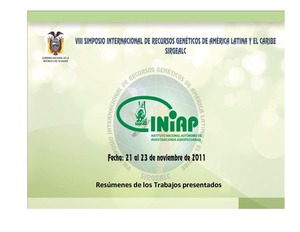Genetic population structure of cacao plantings within a young production area in Nicaragua
Significant cocoa production in the municipality of Waslala, Nicaragua, began in 1961. Since the 1980s, its economic importance to rural smallholders increased, and the region now contributes more than 50% of national cocoa bean production. This research aimed to assist local farmers to develop production of high-value cocoa based on optimal use of cacao biodiversity. Using microsatellite markers, the allelic composition and genetic structure of cacao was assessed from 44 representative plantings and two unmanaged trees.









